Responsibility and sustainability
We want to contribute to the building of a sustainable future. That is why it is important for us to act responsibly towards people, the environment, and society.
We are committed to complying with the principles of sustainable development in the UN 2030 Agenda and are currently working on our own sustainable development commitment.
Social responsibility
Social responsibility refers to ethical and sustainable activities, a healthy work and study environment and conditions, and equal and fair treatment for both personnel and students. We do not tolerate harassment, discrimination, inappropriate behaviour, or inappropriate conduct of any form.
We are committed to the values of the rescue sector in our operations and strive to ensure that the rescue service professionals we train also commit to working humanely, professionally and reliably – and collaboratively.
We work actively to promote social responsibility
All our employees complete training against harassment and inappropriate treatment. We regularly update our guidelines and equality and non-discrimination plans to promote equal treatment. Our events follow the principles for a safer space.
We systematically assess occupational safety risks affecting our operations and actively develop operating models that promote safety in the rescue service sector. We investigate all occupational injuries that occur.
We support the well-being of our personnel by offering opportunities for physical activity, thus helping our employees and students to maintain their ability to work and promote their well-being. We also support the professional development and training of our personnel.
Environmental sustainability
In order to provide high-quality rescue service training, it necessary for us to burn things and handle environmentally hazardous substances on our training ground. We do, however, strive to minimise the environmental damage of our operations and continuously develop our activities towards being more environmentally friendly.
Training sites and properties
Environmental legislation, chemicals legislation, and occupational safety legislation set the framework for our operations on the training ground. We closely monitor our consumption and the impact of our activities on the surroundings of the training ground, such as air and water quality. We avoid the introduction of hazardous substances into the environment e.g. by mainly burning clean wood and extinguishing fires with pond water instead of chemicals.
We regularly conduct energy surveys to promote the energy efficiency of our properties. Since 2007, we have made the heating solutions in our properties more efficient by switching from oil heating to geothermal heating and installing air source heat pumps.
Our training ground is included in the Senate Properties’ continuous maintenance programme, which monitors energy consumption, indoor air quality and indoor conditions. In addition to real-time monitoring, this enables the rapid intervention in abnormalities and optimisation of the sources of energy consumption in properties through automation systems.
Heavy equipment and travel
We aim to reduce the emissions from travel as much as possible. Our employees can work remotely whenever permitted by their job duties, and we favour public transport and car-sharing in our commutes. As a rule, we do not use air travel for commuting less than 500 km.
We take environmental friendliness into account when purchasing heavy equipment. We have bought electric or hybrid cars for official use.
Whistleblowing channel
The Emergency Services Academy is committed to acting responsibly, and all identified risks are addressed as early as possible by taking appropriate measures. Despite our best efforts, some risks or shortcomings may go unnoticed. The Emergency Services Academy encourages you to report any issues you have encountered so that they can be addressed. Having reasonable grounds for suspecting wrongdoing is enough for submitting a report. There is no need to have tangible evidence.
Current and former employees of the Emergency Services Academy can use the whistleblowing channel to report suspected wrongdoings that they have noticed in their work or in connection with it. Trainees at the Emergency Services Academy can also report their suspicions.


